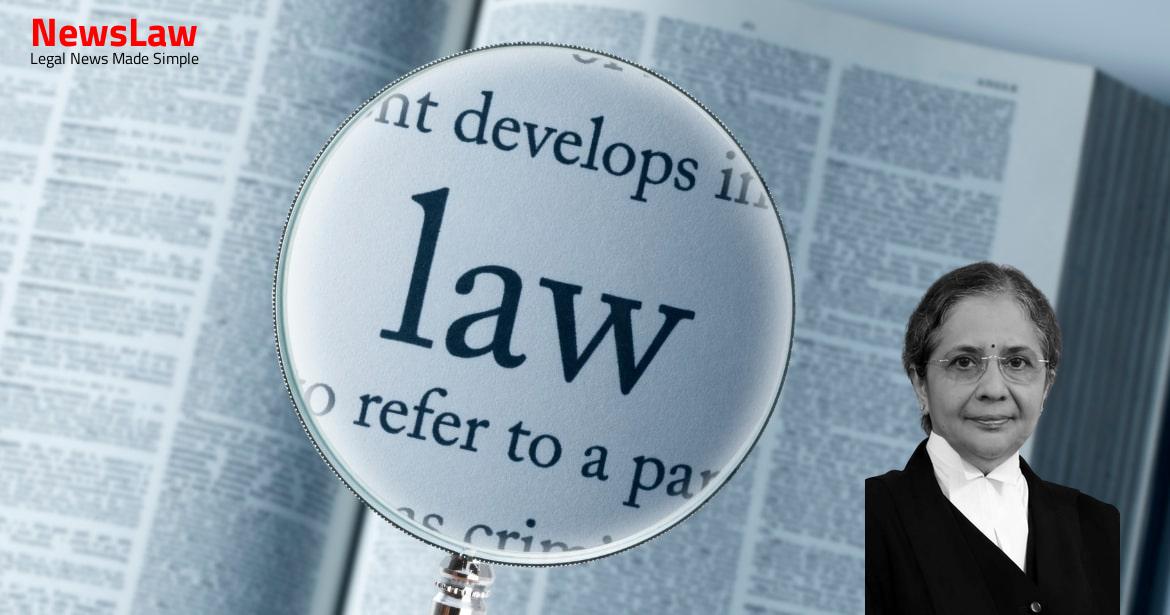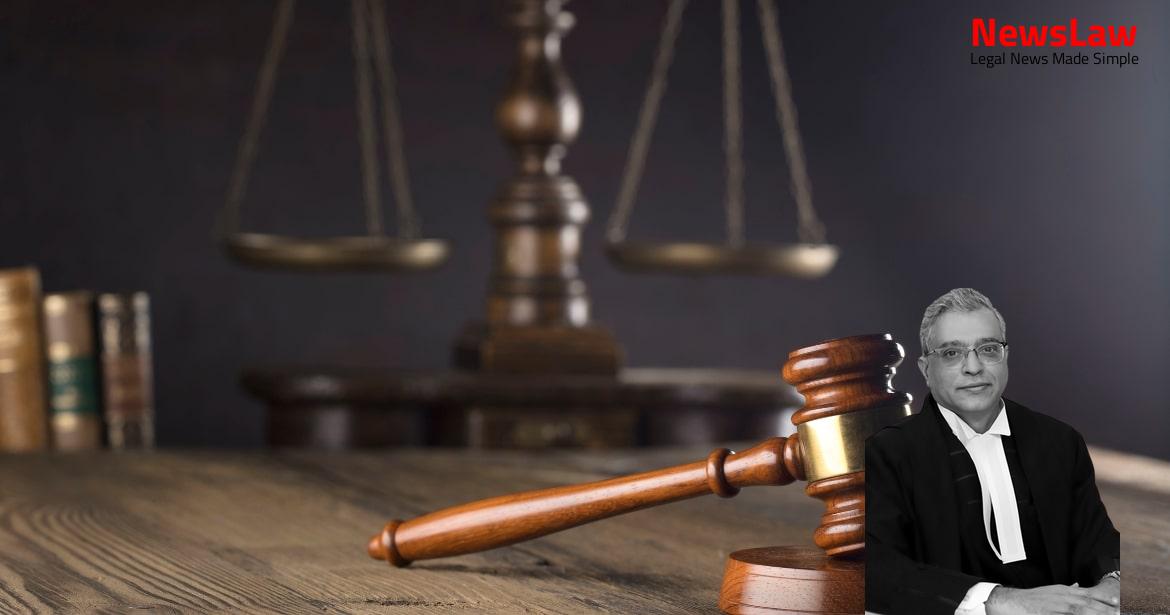Explore a detailed legal analysis by the court regarding the offence of money laundering in a significant PMLA case. The court’s scrutiny of the definition of ‘proceeds of crime,’ the actions constituting money laundering, and the requisite intent before handing over the amount sheds light on the complexities of the case. Discover the implications of the court’s decision and how it impacts the legal landscape surrounding money laundering offences. Let’s delve into the detailed analysis provided by the court in this intriguing case.
Facts
- The respondent, Padmanabhan Kishore (A2), handed over Rs.50,00,000 to a public servant, Andasu Ravinder (A1), leading to the registration of a crime under various sections of the IPC and Prevention of Corruption Act.
- Later, the Enforcement Directorate registered a case against the accused under the Prevention of Money Laundering Act (PMLA) based on the transactions.
- The High Court accepted the submission that the amount in question was not considered tainted money until received by the public servant, and therefore the respondent could not be connected with proceeds of crime under the PMLA.
- Writ Petition No. 25670/2019 was filed by the respondent to quash proceedings under the Prevention of Money Laundering Act, 2002.
- The High Court granted the writ petition and quashed the proceedings against the respondent.
- The decision of the High Court is being challenged in the present appeal.
Also Read: Balancing Power and Transparency: Electoral Bonds Struck Down, Disclosure Mandated
Analysis
- The section discusses the offence of money-laundering and the punishment associated with it.
- It mentions the definition of ‘proceeds of crime’ as any property derived directly or indirectly from criminal activity.
- The section outlines the actions that constitute money-laundering, including concealment, possession, acquisition, and use of proceeds of crime.
- It states the punishment for committing the offence of money-laundering, with imprisonment for a minimum of three years and a fine.
- There is a provision for increased punishment if the proceeds of crime are linked to specified offences.
- Paragraph 8 of Part A of the Schedule lists offences under the Prevention of Corruption Act, 1988.
- The section questions if the respondent’s actions fall under the purview of the PML Act’s money-laundering offence.
- It emphasizes that until untainted money is actually handed over as a bribe, it remains legally untainted.
- Intent to hand over money as bribe must be antecedent or prior to actual handing over of the amount.
- Handing over money with intent of giving bribe constitutes involvement in activity connected with proceeds of crime.
- Definition of ‘proceeds of crime’ in PML Act includes property obtained as a result of criminal activity relating to scheduled offences.
- Offences punishable under Sections 7, 12, and 13 are scheduled offences under PML Act.
- Active participation is necessary for money to be considered as proceeds of crime.
- Section 3 of PML Act covers the role played by a person in connection with proceeds of crime.
- Complaint by Enforcement Directorate indicates prima facie involvement of respondent in activity connected with proceeds of crime.
- Requisite intent is essential before handing over the amount.
- The High Court’s view that the respondent cannot be held liable under the PML Act is incorrect.
- The observations on the respondent’s involvement are prima facie and based on the allegations made by the prosecution.
- The court is considering whether the allegations, if true, would constitute an offense.
Also Read: Recall of Resolution Plan Approval: Legal Analysis
Decision
- The matter will be considered purely on merits at the appropriate stage(s).
- The appeal has been allowed.
- The respondent shall continue to be proceeded against in accordance with law in E.C.I.R. No 13 of 2016.
- The judgment and order passed by the High Court has been set aside.
Case Title: DIRECTORATE OF ENFORCEMENT Vs. PADMANABHAN KISHORE (2022 INSC 1143)
Case Number: Crl.A. No.-001864-001864 / 2022



